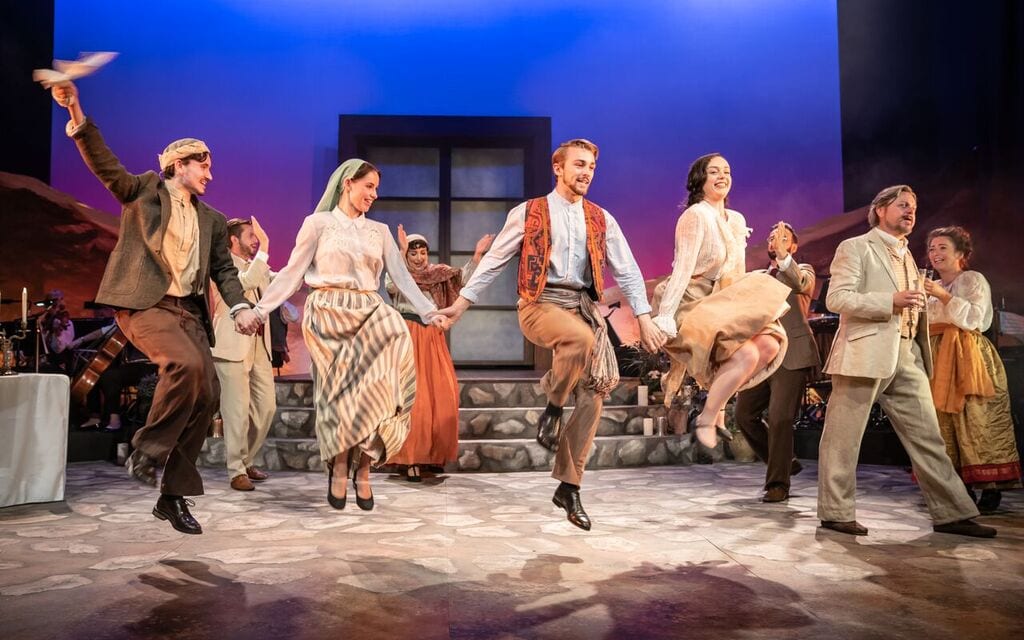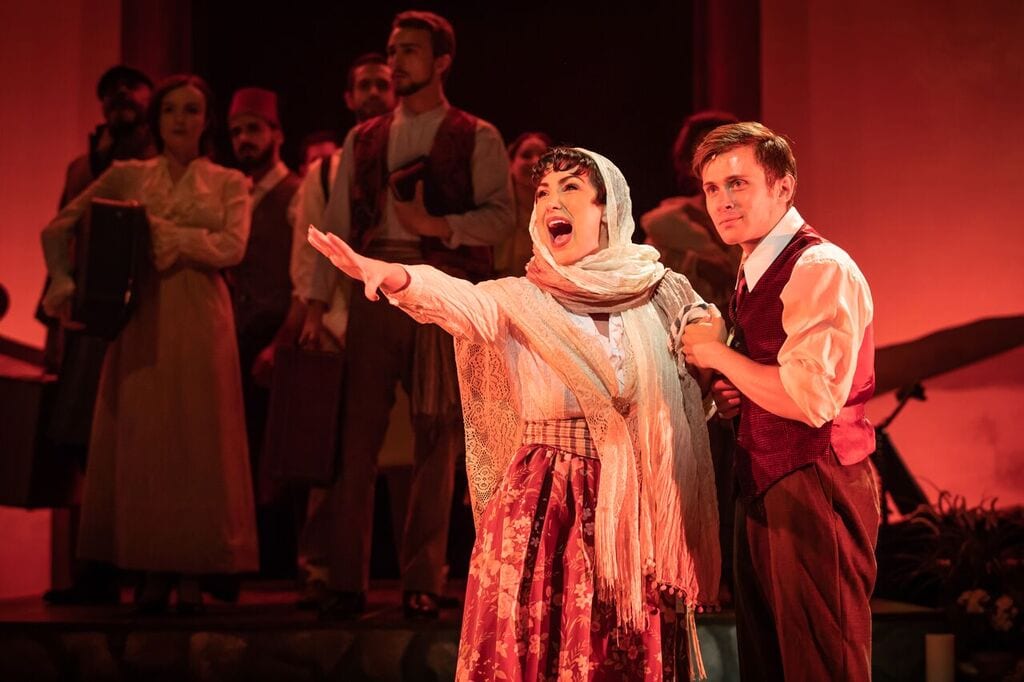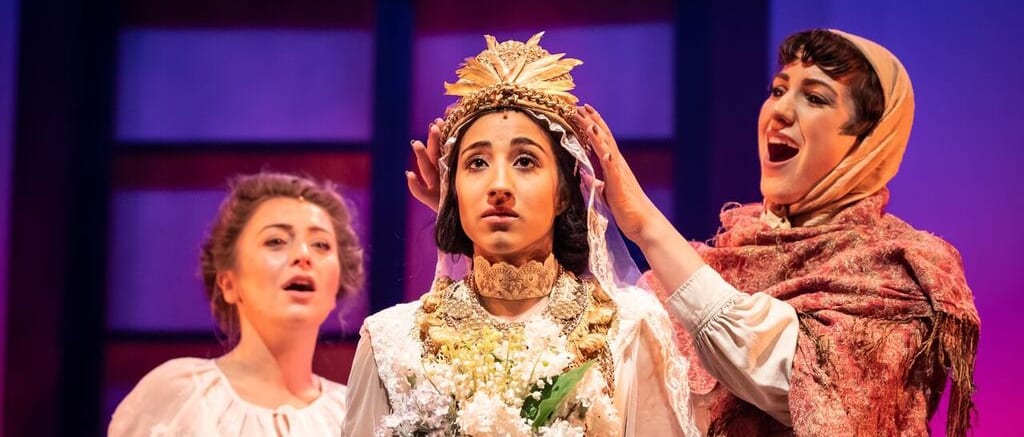Kahlil Gibran, the Lebanese prose-poet, is still little known in the West despite the fact that his writings, in both Arabic and English, remain continuously in print and hugely popular. His romantic, rhapsodic moral earnestness and strong social conscience have gained him both high literary status in the Middle East and regular quotation in public ceremonies the world over. However, he has not won over the critics, and one of the many merits of this new Qatari musical is to re-package his literary persona in its most attractive form. Nadim Naaman has taken the plot of his first and semi-autobiographical novel and, with the addition of Dana Al Fardan’s accessible music, opened out a memorable story that is highly suitable for the stage, with strong characters, clearly articulated conflicts, and many important issues to reflect on. The impediments to love in a culture governed by arranged marriage; the constraints imposed on educated women, irrespective of wealth; the importance of family and home in a world where migration is often the only pathway to survival; the power of memory as an inhibitor and provocation of creativity – all these themes are here in one form or another, and as resonant now as they were a century ago.

Nadim Naaman plays the older Gibran, aged forty, looking back from his apartment in New York City on his younger self (Rob Houchen) returning to pursue studies in his home city of Beirut around 1900. He reunites with both an old school-friend Karim (Nadeem Crowe) and with a friend of his father’s, a wealthy retired merchant, Farris Karamy (Adam Linstead). The meeting between Farris’ daughter Selma (Nikita Johal) and the young Gibran is love at first sight, but their relationship will not blossom because Selma cannot avoid a strategic marriage to the nephew of the rich and socially powerful local Bishop (Irvine Iqbal). Despite desperate ingenuity and consideration of all possibilities of escape, this variation on Romeo and Juliet cannot end well, and the relationship finds fulfilment only in evocation and memory.
There is not much plot here, but there are memorable dilemmas and powerful emotions which musical theatre can only strengthen, focusing the audience’s experience. The production is at its most successful in two of these specifically musical high-points. ‘I Know Now’ not only finds a memorable tune for the key love-duet but also delicately evokes the experience of first love and the spirit of place embodied in a garden on a summer night. And on a larger scale, ‘Spirit of The Earth’ embodies powerfully in a company number the contradictions of the immigrant experience.

Overall the creative side is carried off with professional technical flair: the vocal standard is high, with crisp and incisive singing from both principals and ensemble, though the acting skills are a bit more uneven. Both incarnations of Gibran are powerfully projected by Naaman and Houchen, and in supporting roles Crowe and Foroughi are outstanding. The costume design by Nik Corrall neatly blends Edwardian and Middle Eastern inflections with elegance, and Nik Farman’s lighting scheme finds both delicate and brash tones as needed. Similar flair is found in Joe Davison’s orchestrations for the nine-piece band, which expertly tracks the vocal lines with instrumental colour and counterpoint and adds Arab percussive and folk touches with skill and restraint. It is a particular and rare pleasure in the West End to have a musical theatre orchestra dominated by strings.
The show could be tightened up at several points to advantage. There is rather too much artificial dialogue particularly for the older characters, and rather too much text set to music that is expository and unmemorable, simply because there is no emotional call for the addition of music at that point. Less both could and should be more; and that would allow the high-points more space to resonate more evidently. The music is grateful on voice and ear but needs to find a wider emotional range too – for example, we could have had more comedy and sprightly villainy to contrast with the pervasive mood of romantic aspiration and disappointment which predominates.
All told, this is a memorable synthesis of traditions and influences from East and West that reflects the priorities of Gibran faithfully, and could and should be the start of something important in the dramatic and musical traditions of the Middle East: faithful to local traditions, yet also open to global priorities.

